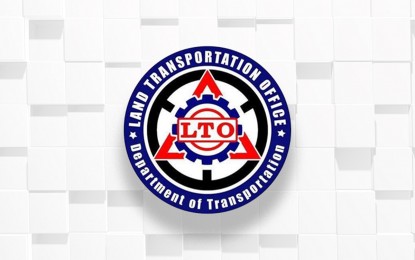
MANILA – Although stricter safety protocols are imposed on public utility vehicles (PUV) in areas under a general community quarantine (GCQ), the Land Transportation Office (LTO) said government and private vehicles must also follow certain protocols or face fines and penalties.
In a Laging Handa online briefing on Monday, LTO chief of operations lawyer Mercy Jane Paras-Leynes said private and government vehicles are not exempted from protocols that mitigate the transmission of the coronavirus disease 2019 (Covid-19) in road transportation.
“Sa private, even sa government vehicles, meron din tayo sanitary protocols na sinusunod. Katulad po ng pagsusuot ng mask at all times (Private, even government vehicles must follow sanitary protocols. This includes the wearing of masks at all times),” Leynes said.
In addition, she said these vehicles must also only carry a maximum of 50 percent of its passenger capacity, with only one passenger seating in the same row as the driver, and a maximum of two passengers per row.
“Meron tayong mga itinalagang mga enforcer para i-check and i-monitor ang compliance dito sa mga sanitary protocols for road transportation (We have authorized enforcers to check and monitor the compliance on sanitary protocols of those in road transportation),” Leynes said.
These policies, she said, were based on LTO Memorandum Circular 2020-2185 released mid-May which sets the guidelines in the enforcement of regulations set by the Department of Transportation (DOTr) for the operation of land transportation in GCQ areas.
“Doon po sa mga hindi tutupad sa ating mga sanitary measures, katulad ng pagsuot ng face mask, gloves, at iba pang mga sanitary protocols na nakalista doon sa ating memorandum circular, matsa-charge po sila ng reckless driving (For those who will not comply with sanitary measures, such as wearing of face masks, gloves, and other sanitary protocols, they can be charged with reckless driving),” Leynes said.
In addition, according to the memorandum, those who will violate physical distancing measures can be charged with ‘overloading of passengers’ equivalent to Article 1, Section j (3) of Joint Administrative Order (JAO) 2014-01 which entails a PHP1,000 fine.
For drivers not classified as authorized persons outside of residence, they can be charged with driving without a valid license under Article 1, Section A of the JAO 2014-01 which entails a PHP3,000 fine and disqualification from being granted a driver’s license for one year.
“Yun din pong mga PUVs, na kailangan kumuha ng special permit to operate, kapag sila hindi nakakuha nun at sila ay nahuli, meron din silang karampatang fine na ii-impose (For PUVs, they need to get a special permit to operate. If they don’t and they get caught, they will face appropriate sanctions),” Leynes said.
The policies, she said, also apply to shuttle services hired to transport workers en masse.
“Even sa social distancing within the vehicle. Yung pong limitation on passenger capacity ini-impose din po sa lahat ng sasakyan,” Leynes said.
Metro Manila has shifted to GCQ which will mark the beginning of the economic recovery in the country’s capital which reels from the impact of Covid-19.
In order to provide transportation to workers who will once again fill Metro Manila, the DOTr on Monday also began the first phase of its gradual resumption of public transportation through allowing the operation of trains, bus augmentation systems, taxis, transport network vehicle services, shuttle services, and point-to-point buses. (PNA)
